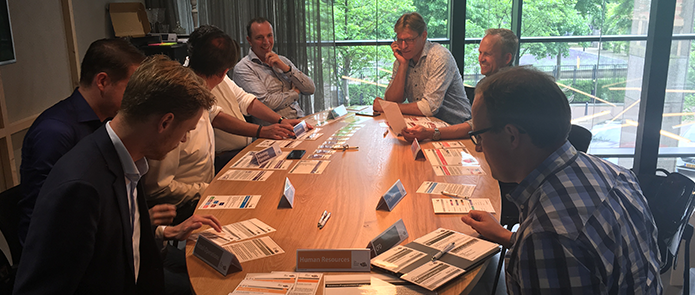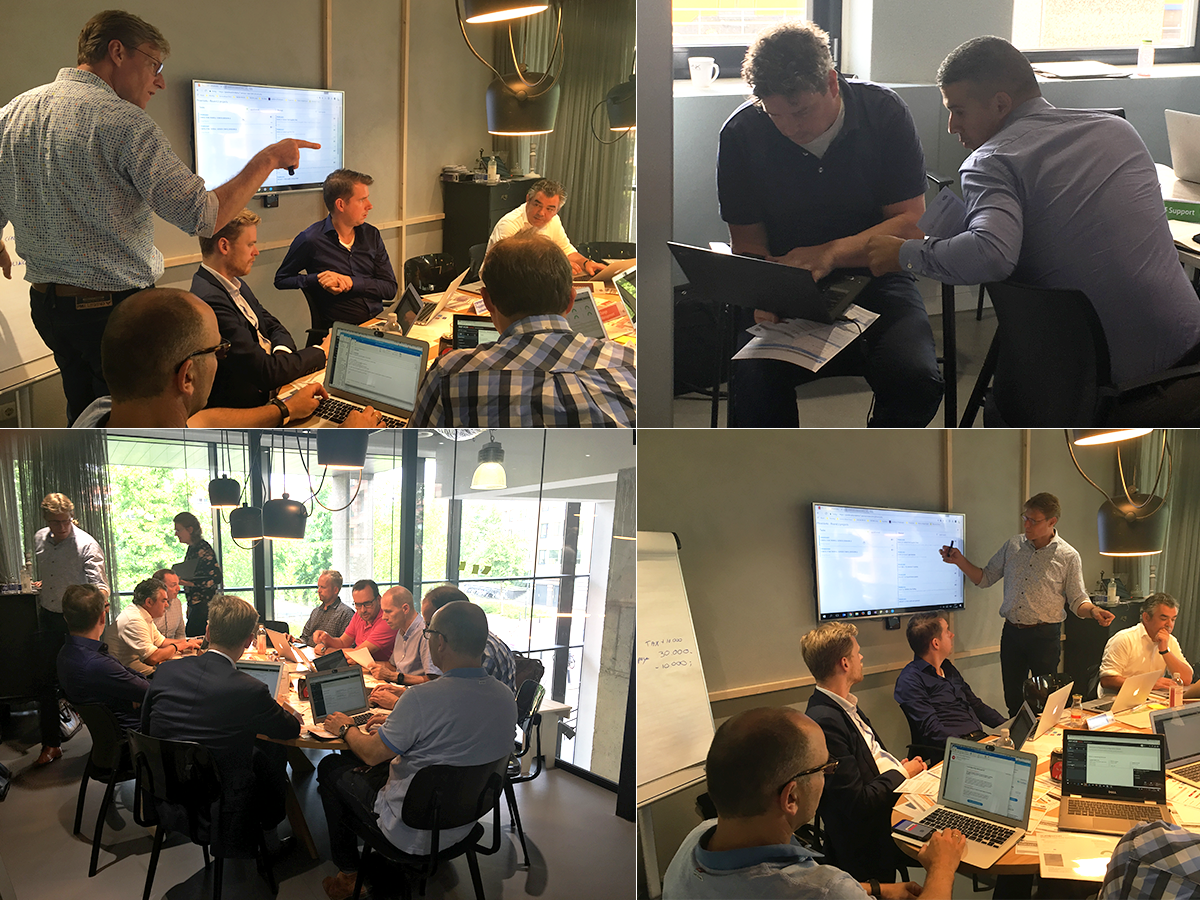DevOps: from philosophy towards best practice

How to establish a cultural change in your digital transformation journey
Many organizations are confronted with continuously changing business requirements. Whether it’s the implementation of a new online payment system or management software to help human resources, its success depends on the collaboration of multiple business silos. As the word ‘silo’ suggests, business departments often operate in an isolated way and therefore fall short of meeting business demands. Since these demands rapidly change, a more integrated and agile way of working is needed. Many organizations are therefore considering to adopt a DevOps approach.
In short, DevOps is a way of working that breaks the barriers between silos. By stimulating cooperation between for example software development and IT operations, changes, deployments and updates can be controlled with a minimal risk of outages or downtime of crucial systems. In addition, DevOps enables a significantly faster way of meeting business demands and creating real business value.
As with any new way of working, DevOps takes time to ‘implement’. It requires a new culture of collaboration, high performing teams, continuous business focus and a lot of dedication. By experiencing the benefits of DevOps, organizations can make a constructive decision in whether or not this approach suits its teams. On the 7th of July, Plat4mation invited a group of thirty people to do just that, experience a way of working together using a DevOps methodology.
“The way we work together is culturally defined”, explains Maarten Bordewijk, trainer at Bordewijk Training, a training provider with expertise in process and project training. “Today I facilitate a simulation in which an organization experiences the (im)possibilities of DevOps. First in an offline setting using simulation cards that contain business opportunities, challenges and goals. Second in an online setting provided by Service Management platform ServiceNow”. Bordewijk is referring to a simulation which was originally developed by the Dutch business simulation developer GamingWorks. The simulation enables teams to quickly grasp the fundamentals of DevOps and was inspired on the book ‘The Phoenix Project’. Plat4mation has recently ported The Phoenix Project to ServiceNow in cooperation with GamingWorks and is now ready to demonstrate its power during a pilot simulation.
The group is divided over multi-disciplinary teams representing the business, software development and IT operations. During round one, the confusion quickly builds up. As decisions are being made to keep a financially struggling fictive company afloat, there seems to be a lack of communication amongst the team members. While for instance operations is actively managing a basic IT infrastructure, the change manager and its test team are already testing and implementing a new software that in real life could never have worked on the infrastructure that is currently being managed. This illustrates the consequences of not diligently following a DevOps cycle: ‘plan’, ‘do’, ‘check’, ‘act’. It comes as no surprise that our fictive company didn’t do well in the first round of the simulation.
So what went wrong? Teams were missing the overview of work that needs to be done, were lacking insight in IT capacity, there was no general workflow and teams did not oversee the responsibilities and tasks that were handed to them, both individually and as a team. “That’s where we step in”, explains Ingrid van Sluis, Management Consultant at Plat4mation. “We’ve looked into all the original simulation aspects and developed a way to make each chapter of the simulation digital. This formed the basis of our take on DevOps using ServiceNow”.
Do, in progress, done
“We’ve worked on projects, tasks, incidents, configuration items and changes. We’ve created multiple dashboards, giving each team the overview it needs to complete its tasks. The business for instance would like to see results, while IT operations needs a detailed list of changes and system capacity. A newly introduced Kanban board (a visualization of workflows) give DevOps teams the opportunity to move activities from ‘do’, to ‘in progress’ or ‘done’. Now each team has a real-time overview of its progress” van Sluis continues. By adding all necessary information, team members feel part of the complete business process. Van Sluis: ”Background information of any task, incident, challenge or decision, is now made available to any team member, resulting in a better way of prioritizing”.
Streamlining DevOps methodology
Well into the second round of the simulation, the team members are getting used to digitally working together and systematically recording every step they take. When one of the team members is asked to describe their progress on a fictive project Hendrik Jan de Jong, Advisory Consultant at ServiceNow answers: “We’ve just observed all our projects and incidents. We’ve allocated the correct tasks and are now prioritizing together with the business team. Based on the outcome we will fill the Kanban board and start working on each individual task”. The chaos that originated in the first round of the simulation has vanished: a textbook example of the effectivity of DevOps.
The business simulation realistically demonstrates the principles of DevOps. “This is not where it ends” explains van Sluis. “We envision real teams successfully implementing DevOps using ServiceNow”. Although DevOps is considered a philosophy and hasn’t been described as best practice yet, the application of this philosophy can benefit any organization regardless its scope. Plat4mation has shown its pilot audience that by applying DevOps principles through the modular Service Management platform ServiceNow, organizations can streamline their processes and get one step closer to creating a standard in the transformation to DevOps.
Join 1400+ ServiceNow professionals
Sign up to our monthly Flow@Work Exclusive newsletter to get free access to our expertise and lots of tips and tricks to make work flow on the Now® Platform.





 Guus Hutschemaekers
Guus Hutschemaekers